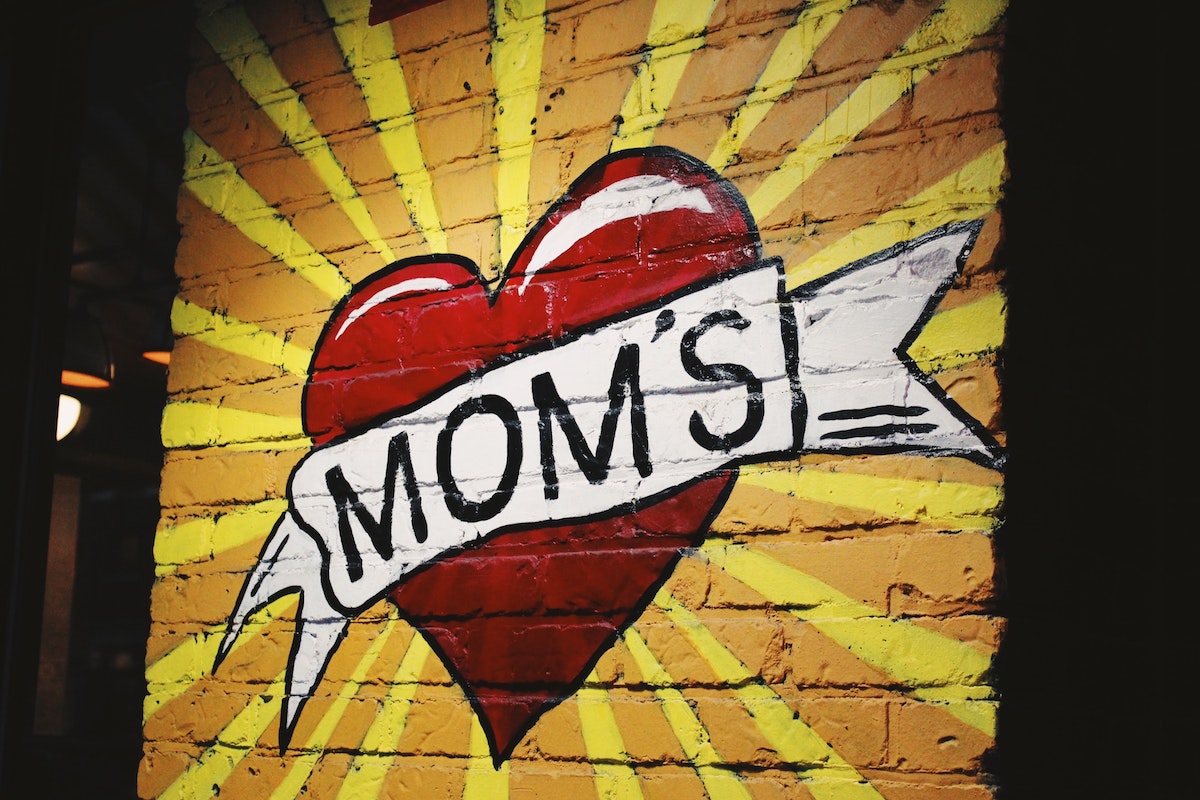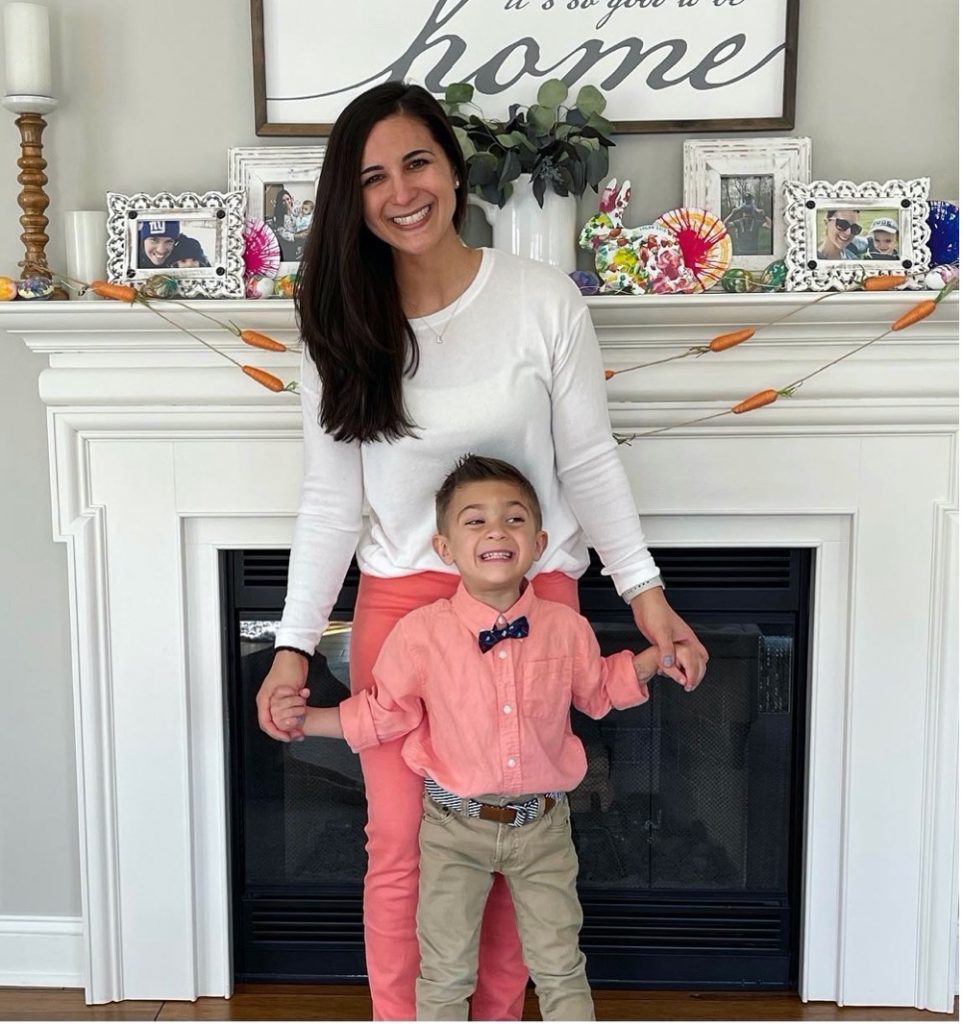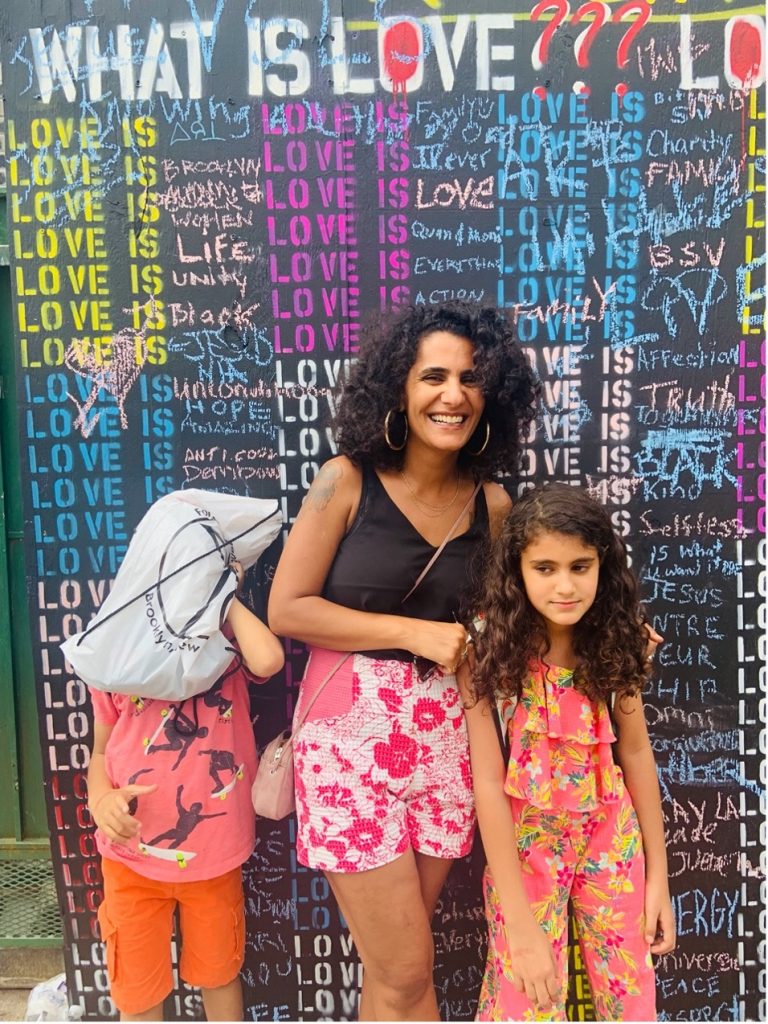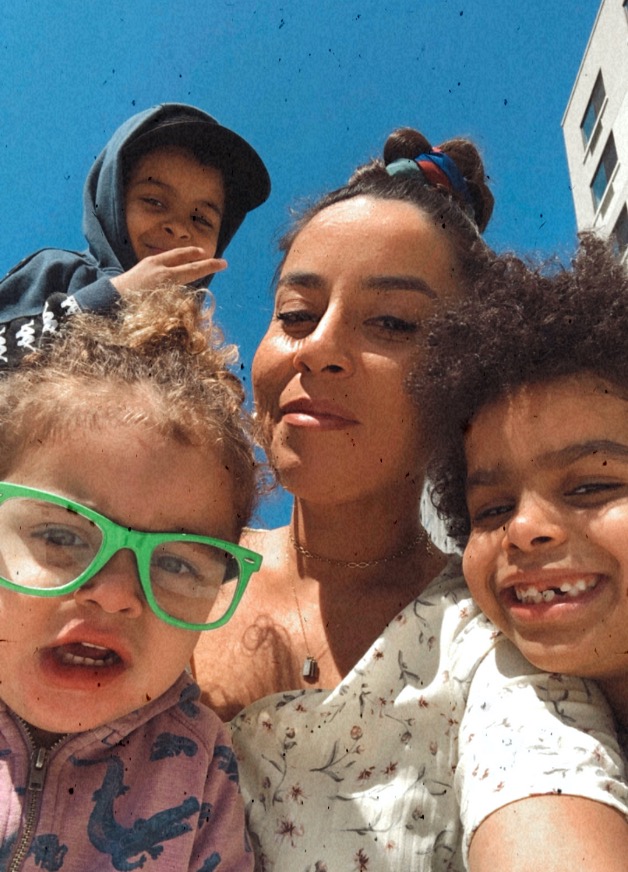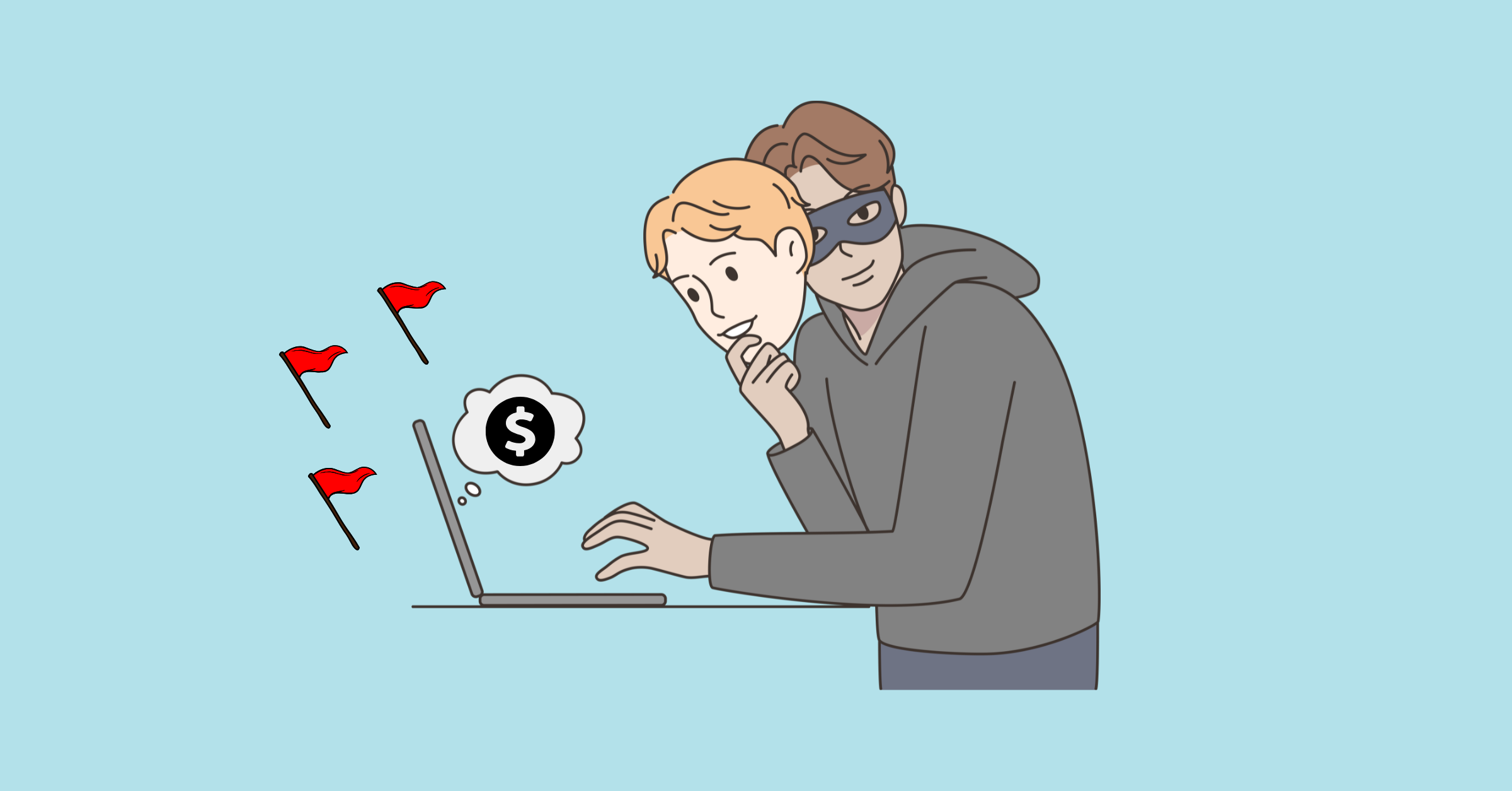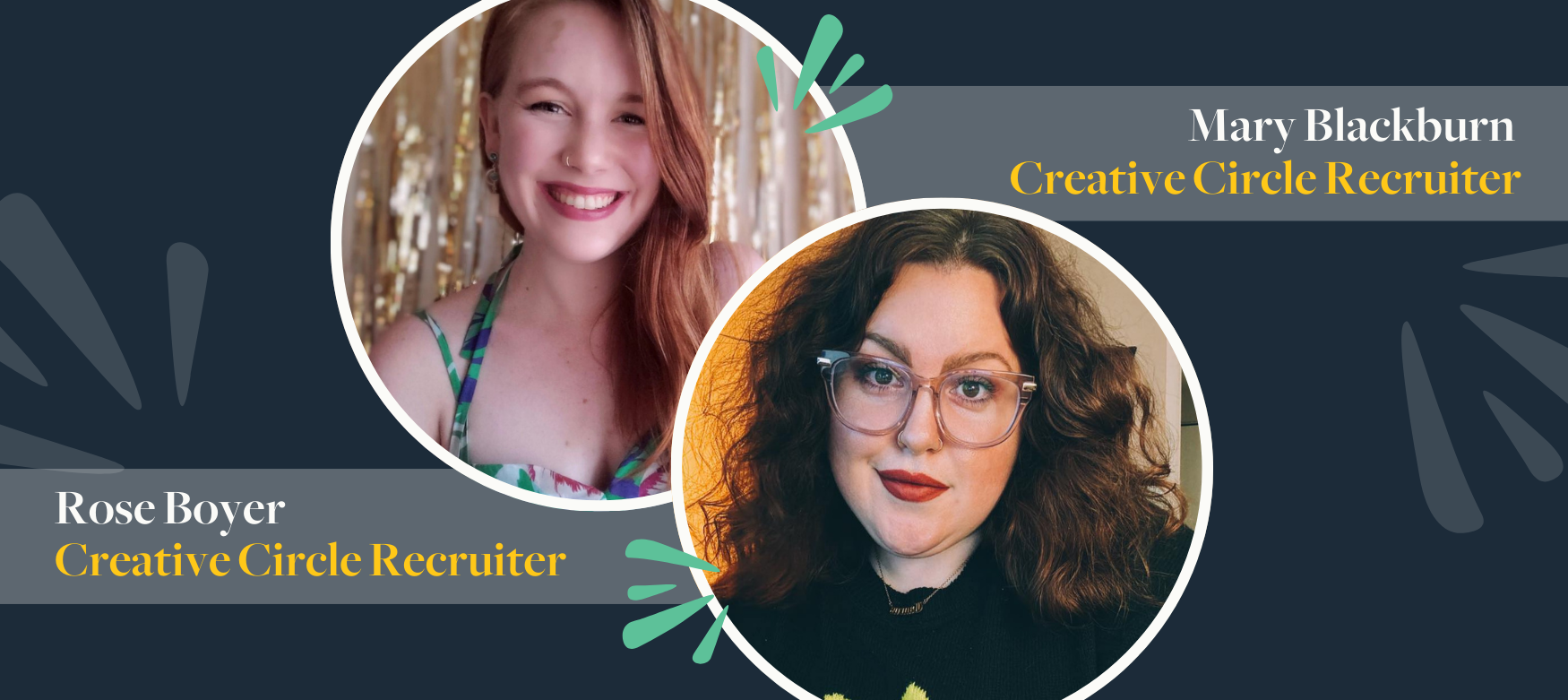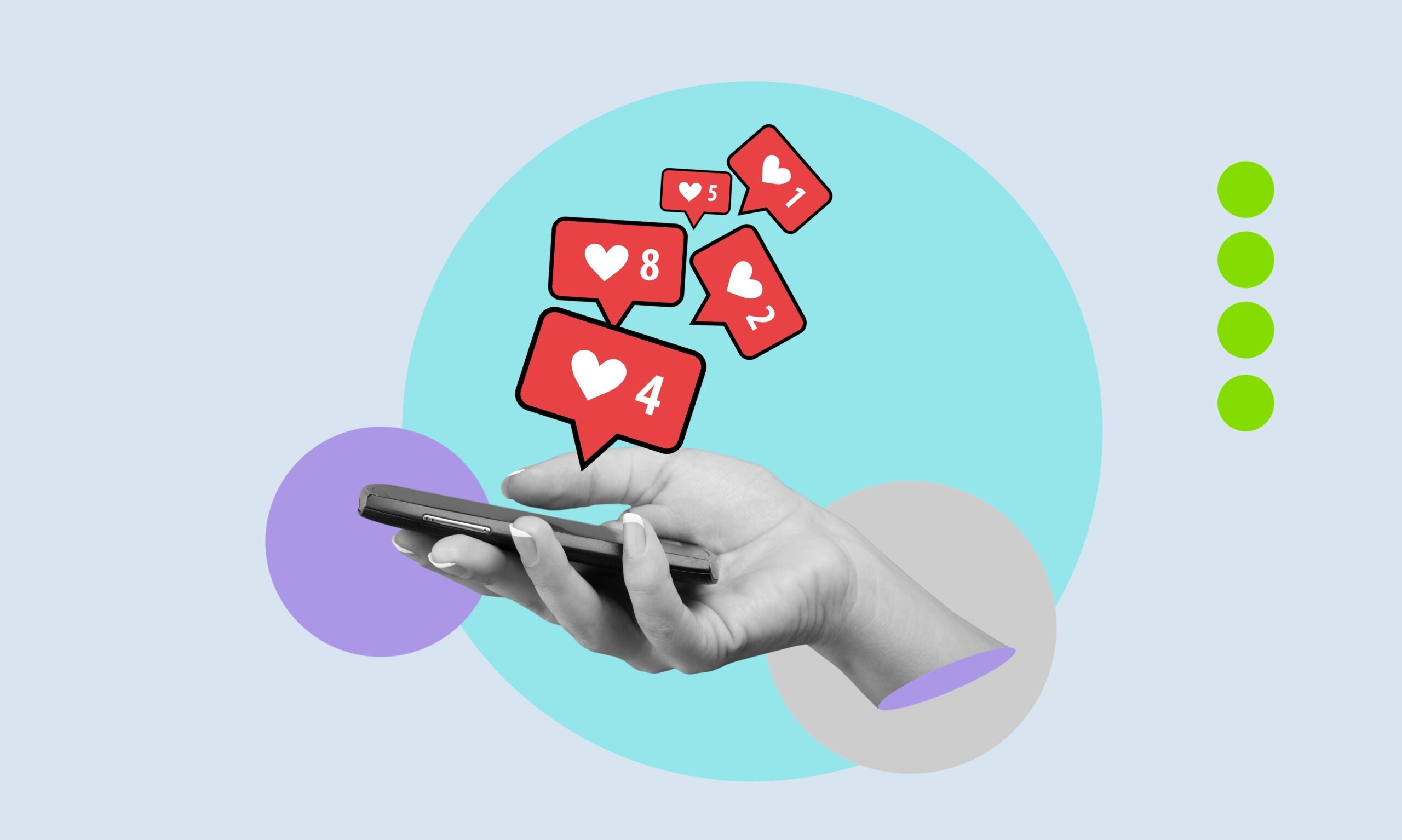There’s long been a refrain among working moms in the United States that to get ahead, the “mama” part of their lives had to be hidden from view, lest they be perceived as undedicated to their career or somehow less suited to the job. And for mothers that are hourly wage workers, this burden is even more starkly evident.
As Betsey Stevenson, an economist at the University of Michigan, shared in a New York Times article on pandemic motherhood, “Covid took a crowbar into gender gaps and pried them open.” There is no hiding anymore. The struggles of working parents, but especially moms, have never been more visible. And yet this work — I’m talking the coordinating, scheduling, planning, multitasking, the mad hustle to make it all work, too often goes unseen. It’s the moms who tend to be responsible for the health of their families, worrying about germs (and viruses), handling the sick days, doctor and dental appointments, and being the default caregivers for older relatives. And this work is mostly unsung — a silent valiant slog to make magic happen from one-handed flint strikes.
Here, we celebrate the stories of four enterprising working moms, living in or near New York City, with three hailing from various countries around the world. Some married, some separated, some somewhere in between — these women share what this past year has taught them about being the real heads of their families.
Jackie Marie Scherr
Age: 35
Rockaway, NJ
Married with a four-year-old son, Logan, who is severely immunocompromised, Jackie is a graphic designer and front-end developer who works with Creative Circle.
+ What has been your experience as a working mom during the pandemic?
The words that best describe my pandemic experience are positively challenging.
Before Covid, I had this WFH isolated life down pat already. For most folks, this was their first foray into WFH, but it’s been my life since Logan was born. Unfortunately, he’s immunocompromised and can’t interact with other kids in the same way, under the best of circumstances. Logan was born without a functioning bone marrow system and lived on blood transfusions until he was eight months old, when he underwent a full bone marrow transplant. He recovered from the bone marrow failure he was born with, but two years later developed a platelet disorder, ITP (idiopathic thrombocytopenic purpura), which means he continues to need special care.
We, as a family, were already living in this more careful, isolated world. But the extra challenging part with an immunocompromised kid is that there’s an added nerve-wracking weight to all our choices. We were already living a cautious existence — this just kicked everything into a far higher gear.
+ What kind of work do you do? Where do you work?
I’m a freelance graphic designer and work for myself: I do web development, illustration, custom design, and more. In addition, I work with Creative Circle and design the Cognitive Art data visualization in the new client-facing newsletter, The Creative State of Work.
+ Have your kids gone back to school?
Logan has never been in school. Once I had him, I had to leave my advertising job because of the risk to his health. We did sign him up for Pre-K — but that was before Covid. We do a virtual pre-school and an outdoor storytime at the library.
+ How have you gotten work done with the kid/s home?
Luckily, I live close to my parents, and they watch Logan two days a week. But when they can’t help me, I work in the morning before Logan wakes, at night after bedtime, and during the weekend, when my husband is home. The beauty of freelance is that I try not to bite off more work than I can chew.
+ Have you gotten any help from a partner?
Yes. Like anything else in a relationship, it took my husband and me a little bit of time to figure out how to balance things. The trick is that his job is the more sustaining one, our health insurance rests on it, and we’ve had to negotiate how we prioritize our various needs. He’s a detective and works in an office, so during Covid, it worked out in terms of our family health concerns. He wasn’t exposed in the same way he would’ve been had he been on a squad. Every night when he gets home, he strips down in the garage and showers before greeting us. Our circle is tiny. For months, Logan and I only went to his doctor’s appointments. Nothing else. We didn’t see my parents for a whole year. We mitigated every last possible risk we could.
+ What has been the most challenging thing about mothering and working and existing this past year?
Feeling guilty. When I’m working and Logan is here, I feel the need to overcompensate with him because he can’t go to school. His interactions are so limited with other kids and people; I feel the need to offer more attention, more activities, more and more and more. I get nervous because he’s so limited in every other aspect of his life that I just want to take advantage of the time I have with him to teach and be with him. It’s super nerve-wracking and worrisome to exist in a pandemic where an ordinary person can be knocked down by this virus, which makes it that much scarier given how precarious Logan’s immune system is. And because of Covid, I didn’t have help from my folks for a long time, which left me to find some semblance of balance on my own.
+ How are you taking care of yourself?
My only me-time is at night when I shower. The end of the day is when I get to zone out, close the door, close the bathroom door, put my music on — it’s my time to chill.
+ Has there been a best part?
The best part is that WFH is much more acceptable now. And that’s been the more limited world that I’ve inhabited for some time. So now that it’s the norm, I actually feel less constrained than I have in the last four years — which is probably the opposite of most people.
+ What would help working mothers in this country?
I think that the pandemic has been an eyeopener for a lot of male partners. Men are now seeing a lot of the chaos going on that they may not have understood before… I hope there’s change that comes from men seeing behind the scenes at all the work moms do to try to keep it all together.
Also, we need to put the kibosh on needing to be connected 24/7. At my old ad agency, if you weren’t connected all the time, you weren’t dedicated. My hope? That we learn that it’s time to sign off when it’s time to sign off. It doesn’t mean a lack of dedication; it means it’s time for life.
+ What advice would you share with other moms and mother figures?
Figuring out the balancing act of mothering and working isn’t an exact science. My advice would be just to give it time to work itself out. Communication is everything. Speak openly with your partner, and whoever helps you is a key to making it all work.
Laura Limonic
Age 47
Brooklyn, NY by way of Buenos Aires, Argentina
Married with one daughter, Anabella, age 10, and one son, Alesandro, age 12. She is a Professor of Sociology at SUNY Old Westbury.
+ What has been your experience as a working mom during the pandemic?
It’s been difficult to manage both being at home with the kids as well as my own work. In large part the boundaries blur — too much — and my role as a mother often takes precedence over my role as a writer or professor.
+ What kind of work do you do? Where do you work?
I teach sociology at Old Westbury. I am currently writing a book about motherhood and the pandemic and also write about immigrant integration into the United States.
+ Have your kids gone back to school?
So, my kids technically go to school — they were able to go back two days a week, sometime in the late fall. But, before then, we had NO live instruction. Everything was asynchronous. They were just given a bunch of assignments to complete on their own. It was a disaster.
However, recently, they’re able to go to school four days a week, but… most of their classes are Zoom, so while they are in the classroom with other kids, they are Zooming with their teachers. Here’s why: No teacher is forced to go in four days a week because of issues of equity. Some teachers have gotten health accommodations. Pre-vaccine, they had comorbidities or had older relatives or infants in their homes. So, to make it fair for all teachers, they ask teachers who don’t have accommodations to only come in two days a week. Every school has done it differently. It’s not great for the kids.
At this point, they still have very little in-person instruction. My son has reading and science with live instruction, sometimes physical education — but very little. And one day a week is still asynchronous. They’re both home on Wednesdays and given assignments to complete on their own — that they finish in an hour tops, and then it’s up to me to invent things for them to do so I can get work done.
+ How have you gotten work done with the kid/s home?
Now that their classes are Zoom and not asynchronous, they’re more engaged, and I can get more work done. Last spring, we didn’t have any live Zoom classes — everything was asynchronous. And my kids finish the assignments quickly and get bored. They’re done. I was getting up at 5:30 am to work. There’s a lot of work that didn’t get done — a lot of articles that didn’t get written. A lot of conference proposals I didn’t submit. I was late on a lot of things. I think what happens is that, particularly for academics, now that I have tenure, I won’t get fired, but if I don’t publish, I won’t advance. Studies of women in academia show that the rate they submit papers for review has been much lower, whereas it has been much higher for men. It’s only served to stratify things further.
+ Have you gotten any help from a partner?
A little bit. But what happens is that because my work is more flexible — and my husband’s work is not — I end up taking on the bulk of the childcare and household labor. Perhaps it wasn’t that my partner did it in the past, more that we paid someone to do it. I think it’s common, especially among middle-class families, that childcare is outsourced. Families often rely on babysitters, nannies, after-school, and household help like housecleaners — none of which was available for much of the pandemic.
+ What has been the most difficult thing about mothering and working and existing this past year?
Mothers have always carried the mental load, and it has increased exponentially. Especially for mothers that work in thinking professions, it has become increasingly difficult to think. Mothers are planning and scheduling activities and academic enrichment on a much more intense level, making it more challenging to focus and think. When kids are in school, there’s a considerable chunk of time when you don’t have to think about these things: What are they doing for lunch? Are they on their iPads? It all takes up space — mental load —and doesn’t leave room for other things.
+ Has there been a best part?
Absolutely. It’s complicated to spend so much time with your family — but it’s also pretty awesome. We’ve done some amazing things together, and I’m deeply grateful. It’s hard to remember that when I want to kill them, but this summer was fantastic. We’ve had some really lovely times.
+ What would help working mothers in this country?
A couple of things — the most significant being mandated leave. Both mothers and fathers should get six months to a year of mandated leave so that there is no shame in taking the time. Caretaking continues to be in the women’s realm, and while men now have some paternity leave at some companies, they often don’t take all of it, or they take it in chunks because there’s a stigma attached to a father taking time to be with his baby.
Another thing the government should do is provide subsidized childcare in year one. I’ve found in my research that so many mothers take on flexible work because once they have a kid and realize that the cost of childcare is so prohibitive and working hours are so long. Yes, they may want to be home with their kids, but their choices are, in large part, due to cost — and they never catch up. They may have thought they’d go back to work, but the realities don’t add up. For instance, once they’ve moved to non-profit law, it’s tough to move back to corporate law. And then you don’t have these moms in the BIG jobs who can advocate for younger mothers — because they’re not there.
+ What advice would you share with other moms and mother figures?
That’s a great question. Don’t quit your job. Seriously. I read this great article about a professor telling students that they should get corporate law jobs, run for office, work in business, and not become social workers and teachers because we need more mothers in high-powered, high-paying jobs. Part of what’s happening is that mothers get paid far less than men and therefore command less power. Like it or not, we live in a capitalist society, and dropping out means we are not playing the game. We need more women in positions of power to advocate from within. Otherwise, the change won’t come.
Yael Yefet
Age 40
Brooklyn, NY by way of Netanya, Israel
Separated, with one daughter, Zohar, age 10, and one son, Ori, age 7. She works at Employees Only — a buzzy, sexy restaurant in NYC’s West Village.
+ What has been your experience as a working mom during the pandemic?
I work in hospitality and was furloughed from my job at the very beginning of the pandemic, so I wasn’t working per se but did take on the lion’s share of managing my kids’ homeschooling efforts. And honestly, having two kids home all the time means that the cooking, cleaning, and overall house management got kicked up to the nth degree!
+ What kind of work do you do? Where do you work?
I work in the restaurant industry so was not able to do any work from home. I have to be physically present to do my job, so have been on unemployment for most of the past year.
+ Have your kids gone back to school?
Both kids went back full time in January. For the first part of the year, they were three days at home and two days at school.
+ Have you gotten any help from a partner?
Yes. When the kids were with their father, I could take care of the things I needed to do. We have a good working relationship and help each other out by being flexible and supporting each other where possible. It takes two to tango — it would be pretty hard to do this parenting thing by yourself.
+ What has been the most difficult thing about mothering and working and existing this past year?
Homeschooling dramatically changed my relationship with my children — and not for the better. I’m not sure that we are supposed to be our kid’s teachers; maybe some of us are, but not me. It was just too challenging to have the patience to do schoolwork with my kids, especially my young son. Ori didn’t have the patience to sit and do his tasks without it becoming a battle. We ended up arguing a lot, and it wasn’t a good situation for us. When they got back to school full-time, it was a blessing for us.
+ Has there been a best part?
Not having to rush — or having to run out of the house in a flurry. It gave us a lot of quality time. I got to be the master of my own schedule, and that doesn’t happen often. We spent time doing things that the kids actually like doing, not things they have to do. It was nice seeing their thought process, even with homeschooling. I got to see how they think and implement the material they are learning. And we got very close. Instead of shuffling them from one place to another, I was able to spend that quality time with them.
+ What would help working mothers in this country?
Good care. Good after-school programs. Good affordable quality care. Someone who would do art with the kids, help them with their homework, take them out to play soccer. Did I say affordable? It takes a village til the kids are quite old.
+ What advice would you share with other moms and mother figures?
Stop trying to control things that you can’t control. Your relationship with your kids is more precious than your kids filling out a worksheet or picking items up around the house. It’s not worth losing your patience or temper; it doesn’t work for anyone — not you, not them.
Enjoy your children. It was nice just to enjoy my kids as they are, not just their accomplishments and what they do. I got to see that Zohar has an extensive bank of friends and admire her social skills; she’s friends with kids I didn’t know she was friends with. She finds beauty in many people — and a lot of people find beauty in her. It was beautiful to witness. Ori is a deep thinker, and I got to see that he thinks in 5 different directions simultaneously in practice.
One more thing: If you don’t have time for yourself, make time for yourself. No one is going to give it to you — you have to make it. Wake up an hour early so you can have your coffee/stretch.
Tanya Veronica Renehan
Age 36
Brooklyn, NY by way of Melbourne, Australia
Separated with three sons, Elijah, 9; Sebastian, 7, Malakai, 3, she works as an executive assistant at a prominent dermatology practice on NYC’s tony Upper East Side.
+ What has been your experience as a working mom during the pandemic?
When the pandemic hit, I was furloughed because the dermatologist immediately shut the practice down. I had just moved into my new apartment at the end of February 2020 — just a couple weeks before the shutdown. I had been a victim of domestic violence and lived in a domestic violence shelter for women and children for 13 months prior. After an exhaustive search for a new home for me and my kids, I finally had found a home. ALL I did for over seven months was search daily for a new apartment that I could pay for with a special grant from the city for women in my situation. Finally, I started at the dermatology practice in late December 2019 and found an apartment through a different program, which took my new job into account.
My home was my holy grail — and I was so incredibly grateful that I had this apartment. When Covid first hit NYC, I thought it would blow over in a few weeks. But it’s still not done, and I am so forever thankful that my kids and I could ride the pandemic out in our new apartment.
+ What kind of work do you do? Where do you work?
I’ve been working as an executive assistant but was in television in Australia, working in the wardrobe department, and am looking to segue back into media again soon.
+ Have your kids gone back to school?
Yes, they are now in school learning in-person five days a week. They went back full-time, the two older ones, in the late fall. One of my boys has some learning challenges, and the school made special dispensations for children in his situation, and his brother got to tag along. I was very fortunate in that regard. My younger son is in daycare, which re-opened in autumn as well.
+ How have you gotten work done with the kid/s home?
When the pandemic began, I was furloughed. After a month or two passed, I started doing some work from home — but it was impossible. IMPOSSIBLE. I had two school-age boys home with different schedules and Zooms. A screaming toddler and just trying to keep the little one out of the way was its own job. You have to almost lock each kid in their own space in a two-bedroom apartment so they don’t fight or distract one another. I kept apologizing to my son’s teachers because I’d miss calls, confuse the schedule. I was still up late at night nursing and didn’t have a partner at home to help at all. And they were home all day, eating. The cooking and cleaning were nonstop. I couldn’t get on top of it all. But I tried. NYC living means no dishwasher or washing machine — so you can just imagine.
+ Have you gotten any help from a partner?
For most of the pandemic, I got no help. My relationship with my children’s father is clearly complicated. Back then, I didn’t trust that his choices were not exposing him to Covid, and I couldn’t take that chance. Today, things have shifted a little, and he helps with logistical things, ferrying the kids to and from school when he can, but they never stay with him, so I have three boys. All the time. 24/7. It’s a LOT.
+ What has been the most difficult thing about mothering and working and existing this past year?
Not getting a break. Feeling at times very burnt out and trying not to implode and lose my sh*t. Feeling the weight of responsibility constantly on me.
Also, my folks are in Melbourne, Australia, so I haven’t seen them now going on two years. I miss them a lot and want to see my gran while I still can.
+ Has there been a best part?
The timeline of when the pandemic transpired was at the start of my new life. I felt the year before that my life was on pause. There was a curfew at the shelter. Even though the pandemic, particularly the spring of 2020, was such a tough time, I was (and am) so incredibly thankful to have found a home just before the world shut down. The pandemic gave me the time to make a home. I ordered the things I needed and crafted a space for me and my boys to live in, which was all I had dreamt about for the 13 months I was living in the shelter — and I brought this vision to life during the shutdown.
+ What would help working mothers in this country?
I think that the United States is terrible when it comes to maternity leave. And they don’t support breastfeeding here. In Australia, breastfeeding is encouraged, and many mothers breastfeed because there is support for it there. Whether you give birth in a public or private hospital, the aftercare the mother receives is the same from the government. You get a midwife that comes and does house visits for the first month. You get lactation support. And if it’s your first baby, you are automatically put into a mother’s group with other new moms in your neighborhood. You meet weekly with the mothers and the leader of the group. Many people become very close with the moms they encounter in their group, and it helps create community.
+ What advice would you share with other moms and mother figures?
If you can, it’s essential to take some time for yourself. It can feel impossible sometimes, but I am a better mom when I can recoup and come back to my kids.
Also, when you are a mom like me, and you don’t have a lot of support, organization is your best friend. So prepare as much as you can the night before. I feel saner (and am my best self) when my home is organized — it helps me be a better mother.
If you are feeling overwhelmed or just need a little assistance, here are some resources that might help:
Mental Health Resources
Parents seeking emotional support can contact the National Parent Helpline at 855-427-2736.
If you are a recent mother looking for support, there are free online support groups offered by Postpartum Support International, with specific programs for Black moms, NICU parents, Spanish-speaking moms, queer parents, and more.
Legal Resources
The Center for WorkLife Law offers a free help line for parental legal rights. Call 415-851-3308 or email COVID19Helpline@worklifelaw.org.
The National Women’s Law Center provides complimentary consultations with attorneys in their legal network. Call 202-319-3053 or request assistance at their website.
A Better Balance, a nonprofit legal advocacy group, operates a confidential help line to assist callers with understanding their workplace rights. Call 833-633-3222.
Food & Housing Assistance
United Way operates a 24-hour help line that connects callers to local food programs, housing assistance, health care resources and mental health support. Dial 211 from your phone.
Mutual Aid Hub offers a nationwide listing of food pantries and community refrigerators and freezers.
About the author.
An award-winning creator and digital health, wellness, and lifestyle content strategist—Karina writes, produces, and edits compelling content across multiple platforms—including articles, video, interactive tools, and documentary film. Her work has been featured on MSN Lifestyle, Apartment Therapy, Goop, Psycom, Yahoo News, Pregnancy & Newborn, Eat This Not That, thirdAGE, and Remedy Health Media digital properties and has spanned insight pieces on psychedelic toad medicine to forecasting the future of work to why sustainability needs to become more sustainable.
